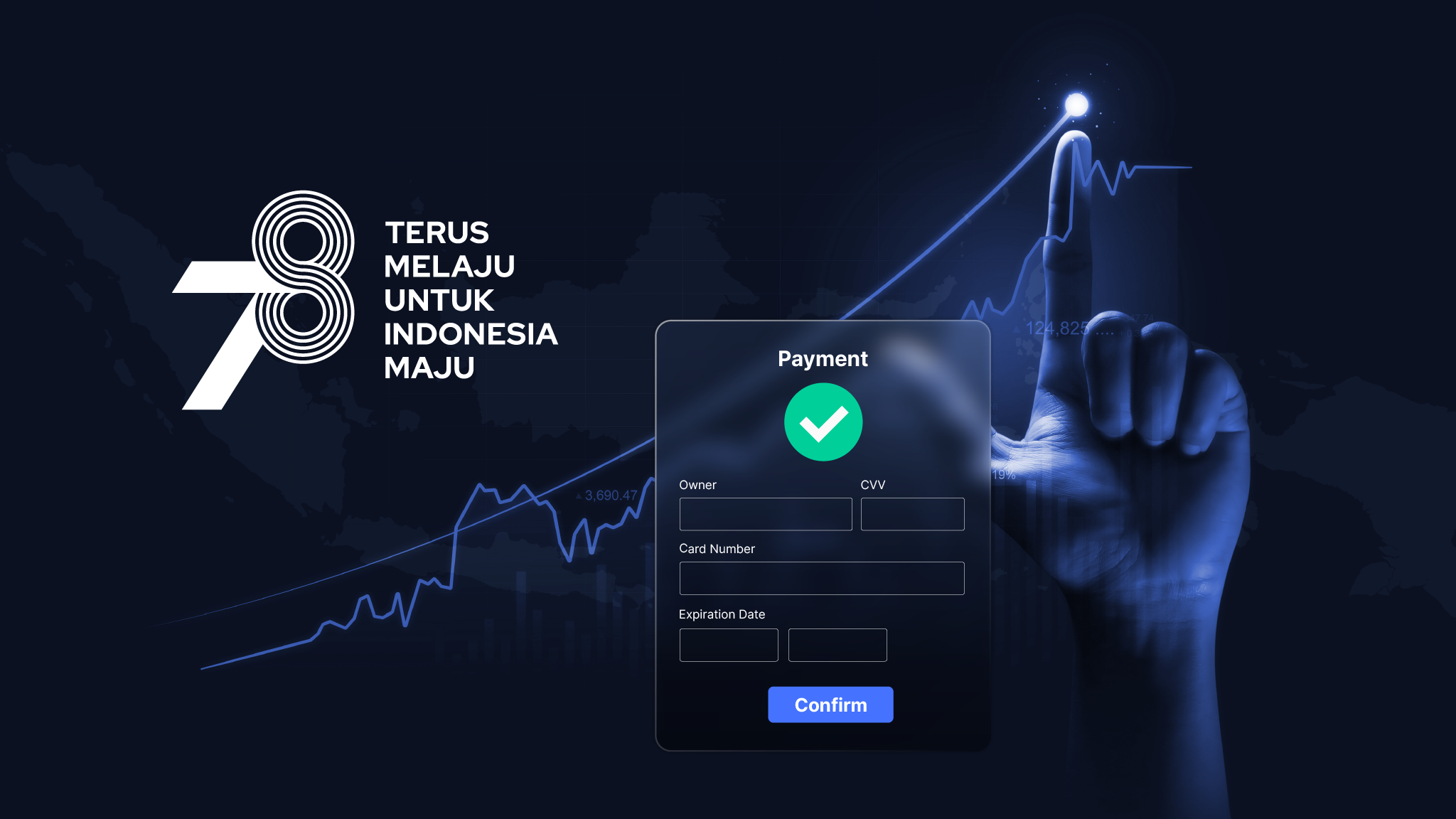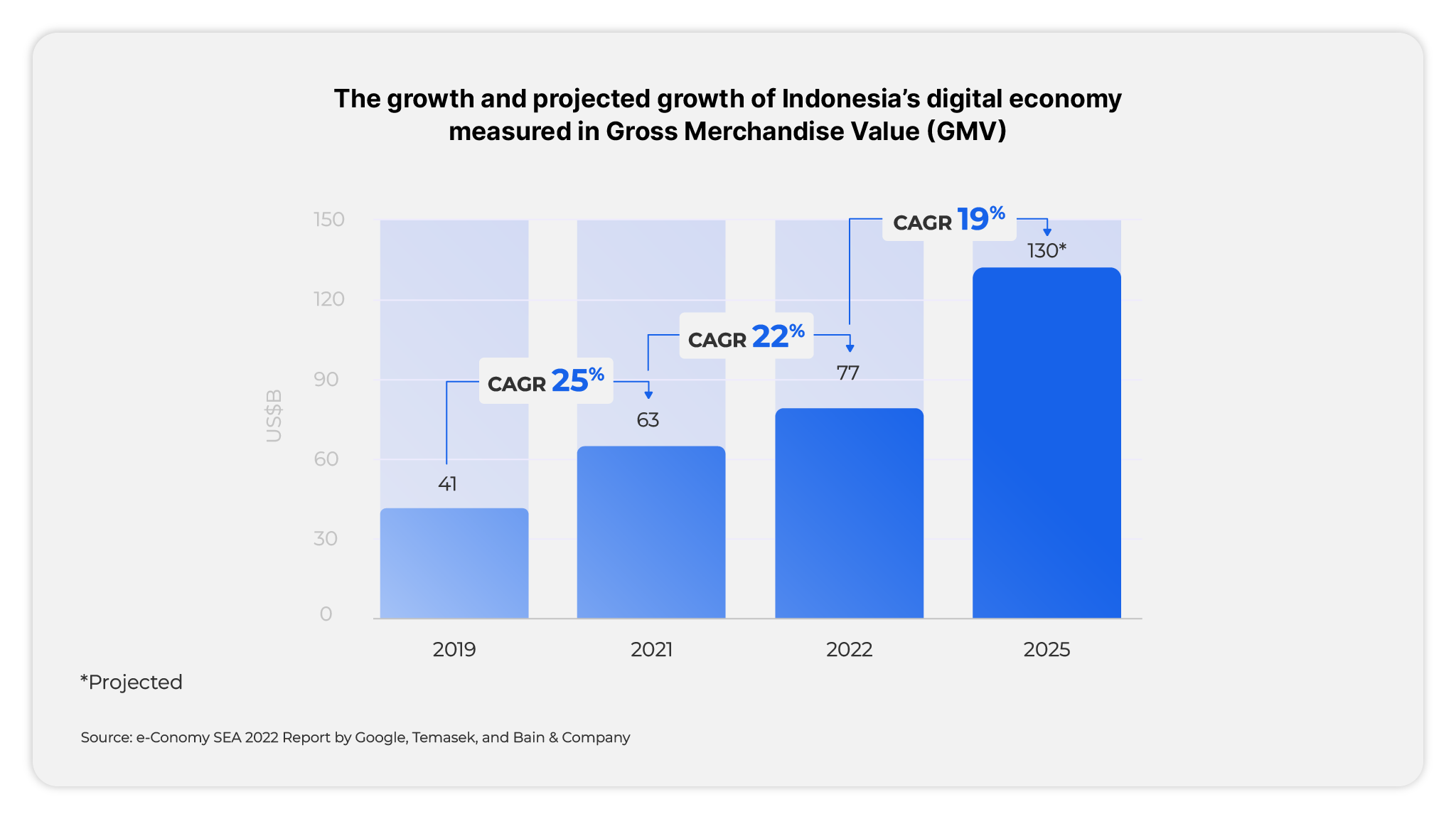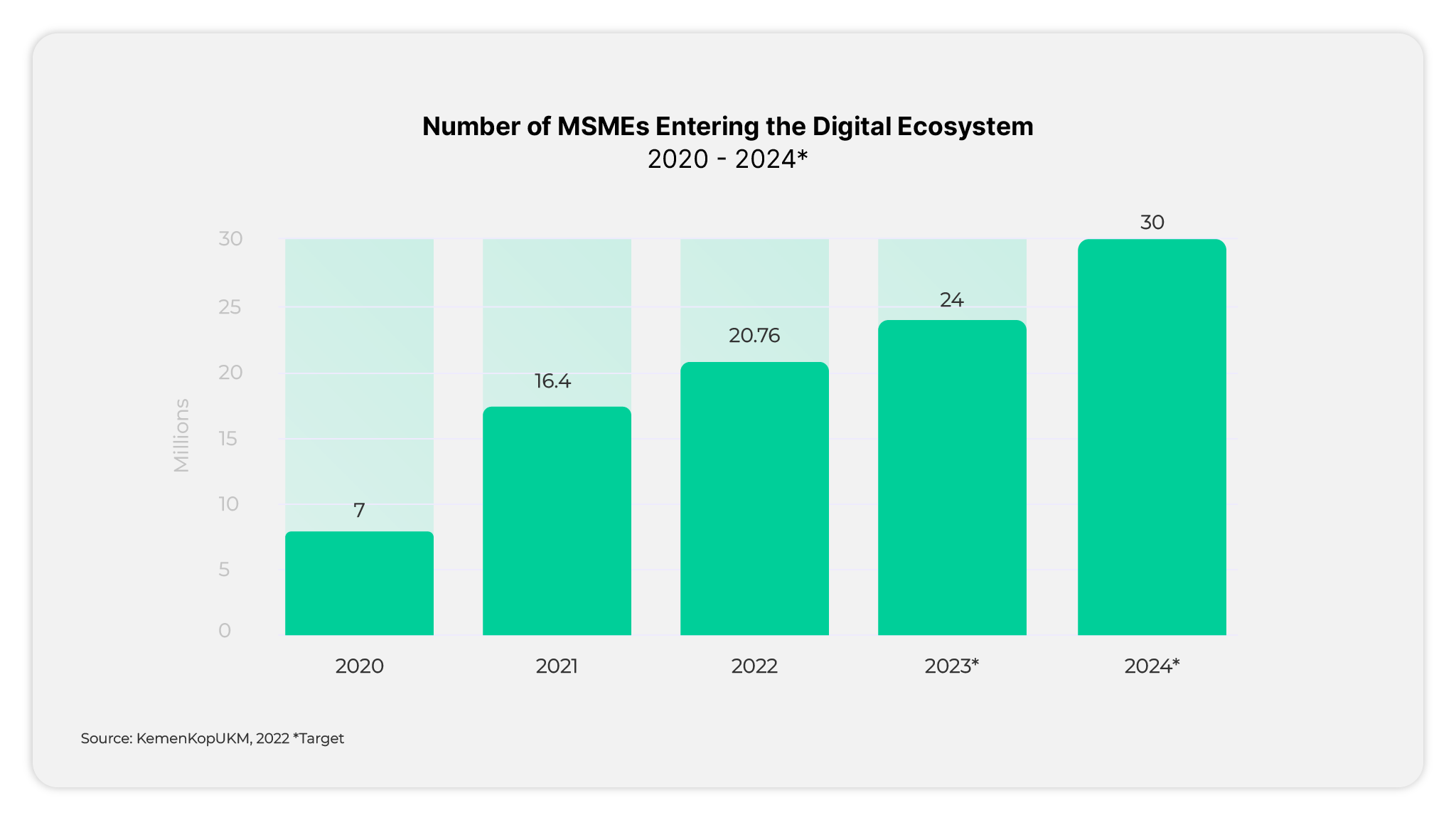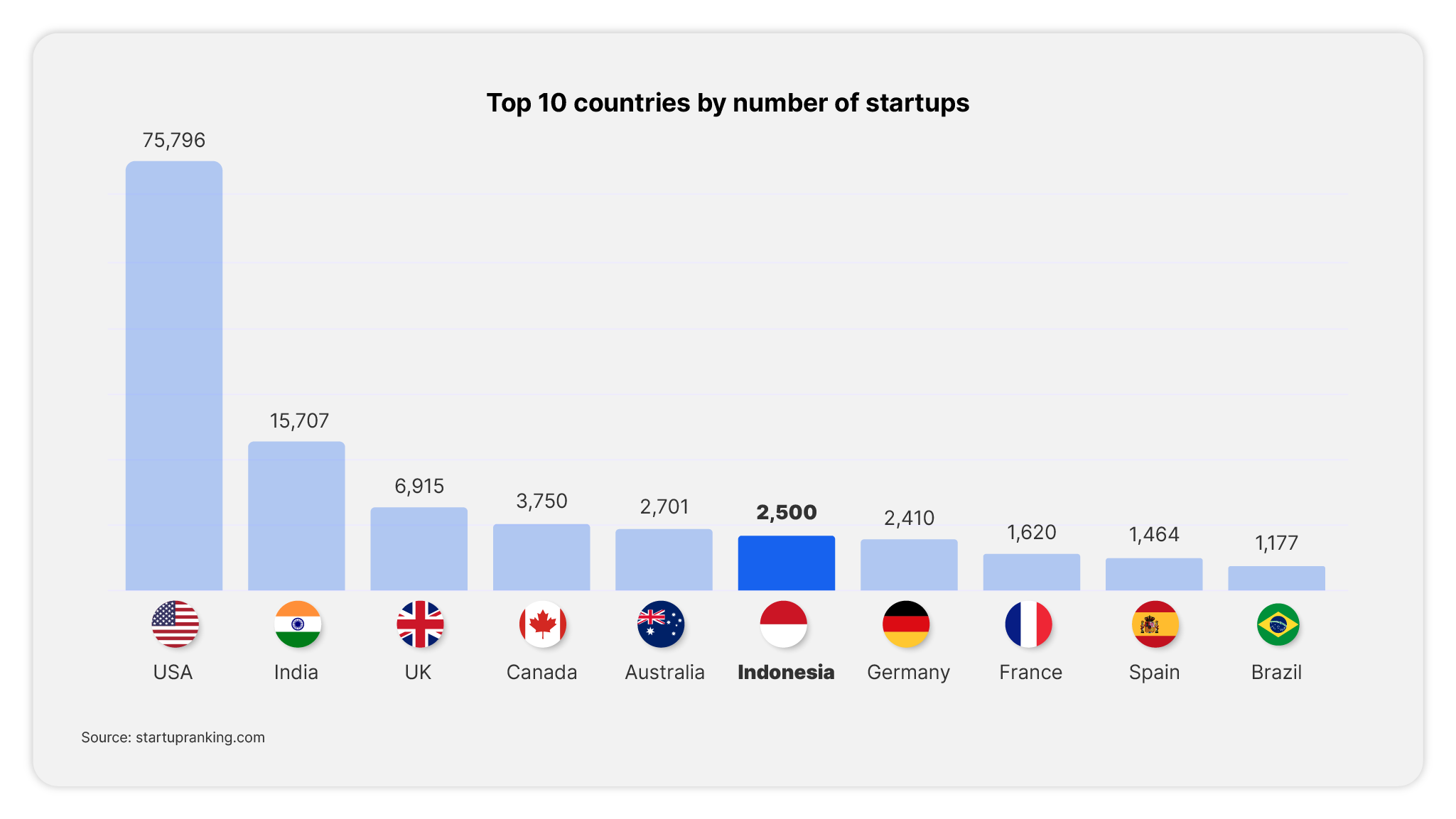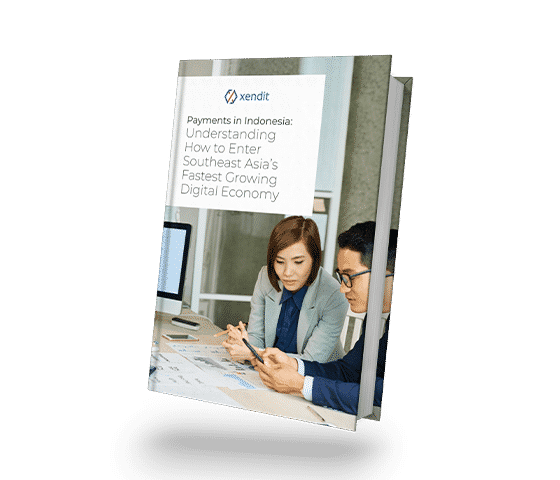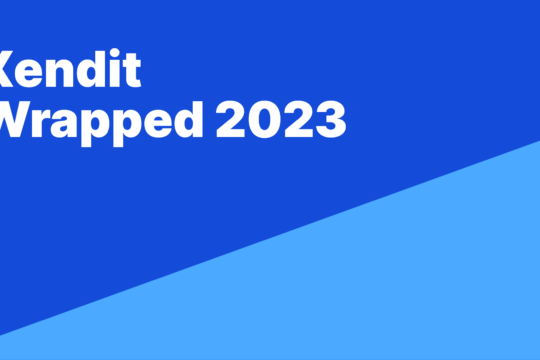Given how quickly Indonesia has progressed in recent years, this year’s official theme for Indonesia’s Independence Day, Terus Melaju untuk Indonesia Maju—which loosely translates to “Continuing to move forward towards a more progressive Indonesia”—is indeed a fitting one.
As we prepare to commemorate Indonesia’s 78th Independence Day, it’s time to shine a spotlight on an impressive feat of progress: the remarkable rise of our digital economy–with the digitalization of payments at the center of it all.
While digitalization plays an important role, all this progress could not have happened if not for the skills, creativity, and forward-looking mindset displayed by everyday Indonesians.
Let’s take a closer look at trends and progress around payment digitalization in Indonesia and celebrate how far we have come, as we continue full steam ahead into the flourishing digital economy.
Indonesia’s payment digitalization trends at a glance
Indonesia’s digital economy ranks first among other ASEAN countries. Indonesia’s digital economy growth recorded a fourfold increase—414%, to be exact—from 2017 to 2021.
Meanwhile, the Covid-19 pandemic has accelerated the growth of Indonesia’s digital economy between 2020 and 2022. The digital economy’s gross merchandise value (GMV) has increased from US$41 billion in 2019 to US$77 billion in 2022 and it is predicted to continue to rise to US$130 billion in 2025.
This rapid rise of Indonesia’s digital economy—during a pandemic no less—is a testament to the adaptability, hard work, and resilience of the Indonesian people as a whole.
The sustained surge in our digital economy’s value hinges on a few key drivers: a combination of government-driven digitalization, the progress of Micro, Small, and Medium Enterprises (MSMEs), and the thriving startup ecosystem.
Digitalization has been a key enabler for the digital economy’s growth
Advances in payment digitalization have a significant business impact in terms of the increased competitiveness of online merchants, as can be seen from e-commerce transactions, which surged by 61% from 2019 to 2022.
Bank Indonesia, the country’s central bank, has been advocating for digital payments as a cornerstone for economic recovery. The government’s support for the growth of Indonesia’s digital economy can also be seen through its plan to make Indonesia a digital hub in ASEAN.
To make it easier for customers to carry out digital transactions and for merchants to provide digital payment services, Bank Indonesia has successfully achieved various breakthroughs so far, such as:
- The implementation National Open API Payment Standard (SNAP)—a national standard set by Bank Indonesia to facilitate open inter-application interconnectivity and interoperability for payment processing
- Achieving 92.5% growth in Quick Response Code Indonesian Standard (QRIS) users in 2022, which now stands at 36 million users
- The launch of BI-FAST—a service that allows customers to send and receive funds in real time, at any time, and at an affordable rate
As a leading payment gateway in Indonesia, Xendit supports payment digitalization efforts by providing easy access to merchants in Indonesia to provide digital payments.
For example, by connecting with Xendit, business owners can provide QRIS payments easily.
Xendit has also swiftly implemented Bank Indonesia’s policy on SNAP. As a Service User (Pengguna Layanan), Xendit has currently completed integration with >70% of Xendit partners. As a Service Provider (Penyedia Layanan), our Virtual Account product has been integrated with SNAP and is 100% built and ready to be used by our merchants.
Besides payment infrastructure, the government, often in collaboration with the Financial Services Authority (OJK), Bank Indonesia, and other key stakeholders, also regularly holds events to strengthen consumer protection education and cross-sector collaboration—all with the aim of accelerating digitalization and driving stronger adoption of digital payments.
Xendit is highly committed in supporting these government efforts, and we are honored to have had the opportunity to participate in various events and working groups, such as Indonesia Fintech Summit & National Fintech Month 2022, Indonesia Digital Economy and Finance Festival (FEKDI) 2023, the G20-Bank Indonesia signing of memorandum of understanding (MoU) on Regional Payment Connectivity, working group for Kartu Kredit Indonesia (KKI) online payment, and many more.
So far, we have also worked with various state-owned enterprises, who have been working hard to digitalize their own payment processes to bring more convenience to the people they serve.
A few examples are BPJAMSOSTEK, which gained thousands of new participants after providing recurring payment services for all informal worker participants, IFG Life, which doubled its payment retention rate through the auto debit feature, and our planned cooperation with the high-speed rail network Kereta Cepat Indonesia Cina (KCIC).
The digitalization of MSMEs is crucial for sustaining the growth of Indonesia’s digital economy
Micro, small, and medium enterprises (MSMEs) are the backbone of the Indonesian economy. MSMEs make up an astounding 99.9 percent of all businesses in Indonesia, contributing 60.5 percent to the national GDP and employing 96.9% of the workforce.
Indonesia boasts over 65 million MSMEs with the potential to deliver competitive products, and going digital can help them boost their competitiveness further—a 2021 research digital payments helped increase transactions for 84% of MSMEs in Indonesia during the Covid-19 pandemic.
The government is well aware of the importance of digitalization for MSMEs. The Ministry of Cooperatives and SMEs (Kemenkop UKM) has outlined ambitious goals for digital integration, aiming for 30 million MSMEs to be part of the digital marketplace by 2024.
So far, Indonesia’s MSMEs have been making good progress. KemenKop UKM noted that the number of MSMEs that have gone digital has reached 20.76 million in 2022–an increase of 26.6% compared to just 16.4 million in 2021.
This development is also reflected in the growing number of MSME merchants on Xendit. Our internal data shows that there were more than 2000 SMEs and MSMEs using Xendit’s payment gateway services in 2022–representing a whopping 70% of our total merchants.
Xendit is fully aligned with the government’s vision to help MSMEs digitalize, and we are constantly collaborating with various stakeholders to achieve that.
For example, in October 2022, Xendit, together with SMESCO, Kemenkop UKM, and the Provincial Government of Bali, launched the SMESCO Hub Timur to bring together businesses in East Indonesia with interested investors and SMEs Investment Dashboard, where Xendit’s expertise in payment infrastructure and data validation automation helps to facilitate data processing. We also worked together with SMESCO, Kemenkop UKM, and Brightspot to organize the Xendit Pasar Nusa Dua 2—a festival showcasing the best talents, products, and brands from Bali and Indonesia.
Besides collaborating with these organizations, Xendit is also proud to have had the opportunity to work with various innovative local MSMEs, such as SARE Studio, RIDE.INC, and Beauty Barn to empower their growth.
Indonesia’s promising, vibrant startup scene can help bring the country’s digital economy to even greater heights
Indonesia is making significant strides in the global digital economy landscape, ranking sixth in the world for the highest number of startups, with over 2,500 registered as of 2023. This achievement positions Indonesia as the only ASEAN nation in the top ten, outperforming Singapore, which ranks 11th.
In terms of the number of unicorns, Indonesia ranks second in 2022 (behind only Singapore), thus proving itself to be one of the region’s start-up leaders.
Furthermore, Indonesia has seen an upswing in investment in the digital sector, with $3 billion worth of deals already secured, making it the second-largest recipient of such investments in the ASEAN region.
With such stellar statistics, the startup scene promises to further catalyze the already impressive growth of Indonesia’s digital economy.
As one such unicorn born and bred in Indonesia, this progress is close to our hearts. Xendit is extremely proud of the grit, innovation, and ingenuity that are pouring forth on such a large scale across Indonesia, and we want to help these entrepreneurs realize their dreams. We want to help create even more unicorns in Indonesia—to play our part in bringing our Indonesian digital economy to the next level.
To that end, we work with various government bodies and venture capitalists to organize a wide range of initiatives, such as:
- The Indonesia VC Database 2023 – Created in collaboration with the Ministry of Tourism and Creative Economy (Kemenparekraf), this database of 90+ VCs in Indonesia aims to help startup founders fundraise more efficiently. To date, 1500+ have downloaded this database.
- Online and offline events with VCs – We regularly hold events together with VCs to introduce startups to suitable VCs and help speed up their fundraising process, as well as so share various insights that are useful for startups.
Xendit’s unwavering support for the development of Indonesia’s digital economy
Xendit is confident and optimistic about the future of Indonesia’s digital economy. As a main player in Indonesia’s fintech space, we are excited to participate in the Indonesian digital economy’s growth.
We welcome the rapidly growing trend of payment digitalization, and we are committed to contributing to the growth of the digital economy across all of Indonesia.
In fact, we are already working hard with various stakeholders on an exciting line-up of activities in the next year!
A few examples are an offline speed dating session to bring together female startup founders with female venture capitalists, a gathering event dedicated to founders who have secured funding from venture capital, as well as continuing to update our Indonesia VC Database, which will feature over 100 active VCs in the next release.
If you’re interested in participating in these activities, keep a look out for them on our Events page here.
Moving forward, Xendit is planning to go all in supporting the government’s initiatives so that we, as a country, can continue along this excellent trajectory of progress, as envisioned in this year’s Independence Day theme—terus melaju menuju Indonesia maju!




